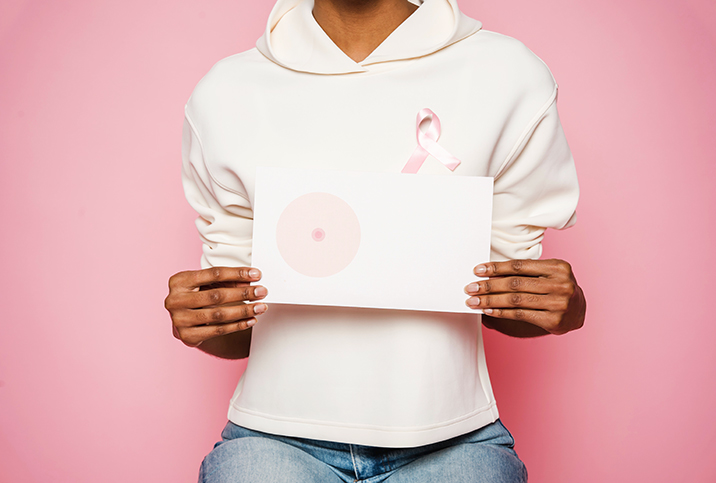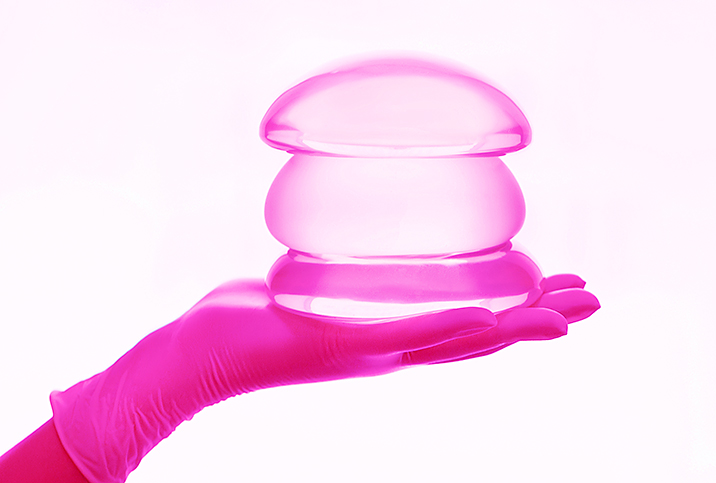Going Flat: Women Who Opt Out of Reconstructive Surgery

When Marianna Mott Newirth, 56, learned she would lose a breast due to cancer, she immediately began trying to wrap her head around reconstruction. It wasn't until her surgeon uttered one word that Newirth changed her mind.
"My doctor used the term flat," Newirth said. "I went on the internet to research flat, and it was like opening a door I didn't know existed."
After discussing the idea with her husband, Newirth, who works as a librettist in Manhattan, decided to forego reconstructive surgery in favor of being a one-breasted woman.
"There's a lot of pressure to look symmetrical," she said in an interview. "Women are supposed to have two breasts, and being one-breasted or flat on one side is a challenge to societal norms, but there is a growing movement."
About 13 percent of women will develop invasive breast cancer, according to Breastcancer.org data. In 2021, about 281,550 new cases of invasive breast cancer are expected to be diagnosed in women in the United States alone.
"Today we have a lot more options for any kind of intervention, and I think there's been a slight societal shift in acceptability of not having reconstructive surgery," said Joanne Disch, a retired clinical professor at the University of Minnesota School of Nursing. It was really more of an outlier 20 years ago to go without reconstructive surgery.
'Women are supposed to have two breasts, and being one-breasted or flat on one side is a challenge to societal norms, but there is a growing movement.'
When Disch, 74, was diagnosed with breast cancer in 1999, there was no question that she would avoid reconstructive surgery.
"For my own personal values and reasons, I didn't want to have it, and I'm a nurse so I know the trade-offs," Disch said. "I just wanted to put the illness behind me."
Some 74 percent of women with breast cancer who chose the option of being one-breasted or flat-chested are satisfied with their decision, according to a University of California, Los Angeles (UCLA) Jonsson Comprehensive Cancer Center study.
"Undergoing a mastectomy with or without reconstruction is often a very personal choice," said Dr. Deanna Attai, an assistant clinical professor of surgery at the David Geffen School of Medicine at UCLA and senior author of the study. "We found that for a subset of women, 'going flat' is a desired and intentional option, which should be supported by the treatment team and should not imply that women who forgo reconstruction are not concerned with their postoperative appearance."
The study further found that only 26 percent of patients said they were dissatisfied with their appearance after going flat.
"It is emotionally uncomfortable for about a year until you get used to what your body is," Newirth said. "It's already traumatic having a mastectomy, and so you may as well grapple with all of it at once. I have no regrets for the choice I made."
It was time that caused Debra Landis, 64, to opt-out of reconstructive surgery after she was diagnosed with breast cancer eight years ago.
"First, I'd have to recover from the mastectomy and let all that heal," Landis said. "Then I would have had another surgery, and it just seemed like way too much because I was working full time at the University of Illinois in Springfield. I had already taken three weeks off, and I just didn't want to take more time off."
Landis added that she was also comfortable enough in her own skin and body to skip reconstructive surgery.
"If I were 30 and had one of the rare cases of breast cancer in women at that age, maybe I would feel differently, but it just wasn't anything that troubled me or my husband," she said.
Jill Brown, 43, was diagnosed with breast cancer in November 2017 and received implants in April 2018 because, she said, it seemed like the natural path.
"There was no other option presented," Brown said. "I was told implants are completely safe, and I never questioned it."
But when Brown woke up from the reconstructive surgery, she instantly didn't feel well. Eleven months later, she underwent an ex-plant in which her breast implants were removed.
"I immediately felt better," she said. "The implants disrupted my hormones. I had rashes and pain in my sternum constantly. I had unknown bruising. I was nauseous every morning. I felt fear, anxiety and depression. My arm went numb all the time."
Now that Brown is implant-free, she feels liberated and healthy. "I don't wear any type of prosthetics or fake stuff in my bra," she added. "I just go out in public flat, and no one says anything. I have a very supportive husband, and flat is just how I present all the time. I think some people do have a process to work through being flat, but I embraced it. Having my health back after that terrible 11 months with implants feels amazing."


















